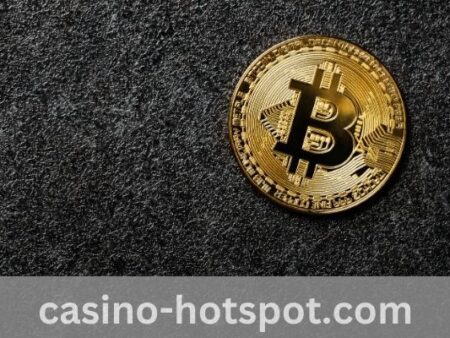Beware of the hype. Increasingly, there is conflicting information available about cryptocurrencies, and more information leads to more hype. Different communities have different economic incentives, so be careful when expressing your opinions. Blockchain backer are excellent social tools, but they can be misused to create false hype about their favorite projects. This can push the prices of the investment up. Before you post your opinions online, think about whether they are accurate. For example, do you really want to post something like “TerraUSD’s price has just risen 200%?”
Jack Dorsey is a blockchain backer
The CEO of Twitter and Square, Jack Dorsey, is a major cryptocurrency backer. The two companies are involved in a range of blockchain projects, and both have a significant influence on the ecosystem. Moreover, Dorsey has publicly advocated for the decentralization of the Internet. He has a long-term goal to become a client of decentralized social media, and he recently tweeted that he is planning to move to Africa in the next few years.
Dorsey has become more personally forthright in recent weeks. He has sparred with rival cryptocurrency backers and set up a fund to defend Bitcoin developers from legal challenges. In the past, Square has downplayed its link to Bitcoin in an effort to focus on other ventures. The company has also acquired Tidal, a music streaming service led by rapper Jay-Z, and the buy-now-pay-later firm Afterpay.
Although Bitcoin has been soaring since its launch in 2009, Dorsey remains a supporter of the digital currency. In late 2018, he tweeted that he wished Bitcoin would eventually replace the US dollar. In recent months, Bitcoin prices have largely tracked the price of Block. Block shareholders are happy to ride the wave when the cryptocurrency rises. But when Bitcoin crashes, they may miss Dorsey’s investment.
The former CEO of Twitter and a blockchain backer has recently weighed in on the crypto industry. Although he is not a fan of Ethereum, he is a vocal supporter of Bitcoin. The Web3.0 system is comprised of decentralized protocols that run on blockchain networks. The system is said to drive the evolution of the internet. However, some doubts remain about the future of Bitcoin.
TerraUSD is an algorithmic stablecoin
Its rapid growth in recent months has prompted the launch of a new crypto fund, the Luna Foundation Guard, to create a rival crypto called TerraUSD. This cryptocurrency uses LUNA as collateral to maintain a constant dollar value. As a result, the price of TerraUSD has fluctuated, with the cryptocurrency last week falling as low as US$0.6841. Ultimately, the LUNA-backed currency could become more valuable than the stablecoin.
While UST is supposed to remain stable, this wobbling could have negative implications for the rest of the market. Other cryptos, such as Luna, have fallen in price as UST struggles to regain its peg. Terra may even sell Bitcoin to maintain its peg. The crypto crash over the past week has vaporized $200 billion in top tokens, including XRP.
On Friday, the token fell below the dollar peg as 121 million TerraUSD were withdrawn from Curve Finance. The firm enables customers to offer liquidity in different “swimming pools” and uses an automatic market maker to set the token’s value. This caused TerraUSD’s deposits on Anchor to fall to $11.8 billion, down from their previous $14.1 billion value.
LUNA has fallen to 70 cents in the last 24 hours, resulting in massive withdrawals from the Terra blockchain dApp Anchor. This de-peg has led to a net UST supply contraction of more than $1 billion. LUNA is the native currency of the Terra protocol, and when investors buy one UST for a $1 Luna, they are burned away, causing the LUNA to depreciate.
Terraform Labs founder Do Kwon is moving to shore up its algorithmic stablecoin
If the rumors about Terraform Labs’s recent acquisition of cryptocurrency exchange GCR were true, then this acquisition could spell trouble for its investors. The company’s founder, Do Kwon, has denied that the firm is a Ponzi scheme and says he is only doing what is necessary to protect his investment. In March, he agreed to a bet of $11 million with some of the company’s critics. He has also been accused of stealing funds from investors, which he claims isn’t true.
The recent rise and fall of UST has caused investors to rethink the concept of algo stablecoins. While some algo stablecoins, like Neutrino, have failed, many investors have viewed them as confidence games. UST, for example, is vulnerable to unpegged value due to the explosive growth of DeFi tasks on Terra’s blockchain.
Galois has criticised Terra on virtually every basis. He warns that there could be a mismatch between supply and demand, which could end up in a collapse of the mechanism that keeps the stablecoin at a dollar value. The TerraUSD peg to the dollar has been breached and is now trading at 88 cents on Binance. As such, the company is scrambling to shore up its algorithmic stablecoin blockchain backer.
It is not easy to engineer a stablecoin. The biggest stablecoins attempt to perform a one-to-one peg to the greenback, but the process requires a centralized agency or financial institution to handle the transaction. DeFi evangelists argue that this contradicts the company’s mission and risked shutting down the entire project.
Terraform Labs CEO Do Kwon pledged to buy as much as $10 billion in Bitcoin in support of the algorithmic stablecoin
The founder of a cryptocurrency company called Terraform Labs pledged to purchase as much as $10 billion in Bitcoin in support the algorithmic stablecoin. The pledge was made as part of a larger effort to make bitcoin the reserve currency of the world. The company has already accumulated nearly 40,000 bitcoin worth $1.7 billion. The company’s affiliate is called Luna Foundation Guard, and it will buy as much as $10 billion in Bitcoin to keep the crypto-asset on top.
In a recent interview with Yahoo Finance’s Zack Guzman, Do Kwon revealed that he is prepared to buy as much as $10 billion in Bitcoin to support the algorithmic stablecoin. Moreover, Do Kwon told Zack Guzman that the company is pursuing a successful strategy to attract competitive external funding.
The company’s acquisition of Terraform is also boosting the bitcoin price, with the cryptocurrency trading for $48,000 as of late March. This acquisition could push bitcoin’s price even higher, but it will have negative repercussions on other crypto markets. In the long term, the company’s acquisition of Terraform will increase the risk of a death spiral.
Do Kwon has a history of investing in crypto assets and cryptocurrency. He has served as the chair of the School of Industrial Design at UC Berkeley. He will continue to hold the position until August 2021. He also studies the effects of HIV on mucosal membranes. He has also coauthored a book on the impact of AIDS on the body’s immune system.
Terraform Labs founder Do Kwon envisioned Uniswap as a cryptocurrency exchange
Do Kwon, co-founder of the crypto startup Terraform, is an innovator in the space of blockchain-based payment. His company, launched in January 2018, has more than 40 million registered users and aims to create a global payment network on a decentralized blockchain. He has already raised $32 million in venture capital from crypto-giants like Coinbase and Bitstamp, and assembled a team of commerce partners to help him launch his product. He has partnered with Korean ticketing giant Ticketmonster, as well as the travel service Yanolja.
By the time he launched the company, Terra had signed up fifteen major e-commerce companies and was processing $25 billion worth of transactions per year. Terra would stand to share a slice of this volume, if he was successful. The company has raised more than $120 million since then and continues to pursue expansion through its investment in a new project: Qredo, a decentralized layer-2 infrastructure for digital assets. Do Kwon said he had originally envisioned Uniswap as a cryptocurrency exchange. However, federal regulators have yet to agree on the details.
Among its other innovations, Uniswap enables users to create synthetic assets, such as bitcoin or ethereum, and trade them on a decentralized blockchain. These synthetic assets, which are referred to as “mirror assets,” can also be traded on automated market makers. The company’s goal is to make trading in cryptocurrencies as simple as possible, allowing the user to trade any cryptocurrency.
As the cryptocurrency market becomes increasingly crowded, Uniswap is poised to become one of the most important platforms. Its decentralized nature makes it attractive to both traders and investors, making it a great choice for investors and merchants alike. With the advent of Bitcoin’s volatility, a stablecoin may be the future of cryptocurrency exchanges.






